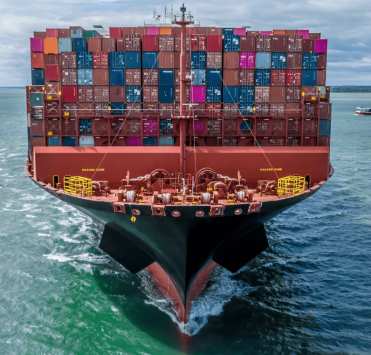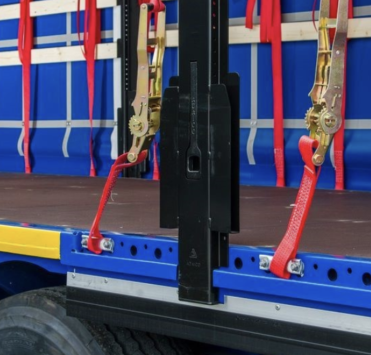Transportation of transformers and equipment for energy facilities in Ukraine

Transportation of transformers and energy equipment is a complex and responsible task in logistics. Moving transformers requires specialized equipment, such as low-bed trailers, platforms, and tarpaulins, as well as a deep understanding of the specifics of handling oversized cargo. These devices are key elements in ensuring stable electricity supply, so every detail of transformer transportation must be carefully planned with a focus on safety and reliability.
In Ukraine, where energy infrastructure is developing rapidly, the logistics of energy equipment is particularly relevant. Transporting transformers and energy equipment in Ukraine requires consideration of local conditions, road network features, and the country’s geography. The use of specialized tarpaulins, platforms, and low-bed trailers ensures the safe delivery of oversized transformers and other equipment to energy facilities.
Features and Challenges of Transformer Transportation
Transformers and other equipment for energy facilities often have significant dimensions and weight. Transporting such cargo is not just logistics; it is a real engineering task where every stage is crucial. Specialized transport, a professional team, and precise route planning play key roles in the success of the operation.
Why is Transformer Transportation a Challenge?
- Unusual dimensions and weight: Transformers can weigh hundreds of tons and exceed standard dimensions, requiring unique solutions for their transportation.
- High cargo value: Damage incurred during transportation can lead to multimillion-dollar losses.
- Safety requirements: Transporting such objects requires maximum adherence to standards and technologies.
Weight and Dimensions
Transformers are massive devices that require specialized equipment. Low-bed platforms and modular trailers with hydraulic suspension can handle enormous loads, ensuring stable weight distribution. This makes the safe transportation of even the heaviest objects possible. Proper transport selection and route planning are the cornerstones of successful transformer transportation.
Equipment Vulnerability
Energy equipment requires careful handling. Even minor vibrations can damage the internal components of transformers. The use of professional cargo securing methods and thorough checks of transport vehicles helps mitigate risks. The smallest mistake during transportation can lead to significant delays in the operation of energy facilities.
Logistical Challenges of Oversized Cargo Transportation in Ukraine
Transporting transformers and other oversized equipment is always a challenge that requires thorough preparation and a professional approach. Save Pro Solutions provides a full range of services, from route planning to ensuring cargo safety.
Route Planning: The Key to Successful Transportation
Transporting oversized cargo is impossible without detailed route analysis. In the EU and Ukraine, many road sections have limitations:
- Bridge and tunnel heights.
- Narrow passages in certain areas.
- Permissible axle load.
Save Pro Solutions logistics experts check all potential obstacles and develop alternative routes. This approach minimizes risks and avoids delivery delays.
Permits and Documentation: An Essential Step in Preparation
Oversized cargo transportation requires numerous permits, including approvals from road services and government authorities. This process is especially important when passing through populated areas with heavy traffic.
Obtaining the necessary documentation can take several weeks, so preparation should start well in advance. Save Pro Solutions specialists handle all formalities, ensuring quick and accurate permit preparation.
Escort and Safety Measures
When transporting transformers and oversized equipment, it is essential to ensure the safety of both the cargo and other road users:
- Escort by specialized convoys.
- Presence of road police, if necessary.
- Temporary road closures and advance warnings to road users.
Each route is planned individually, taking into account the characteristics of the cargo and road conditions.
Technological Solutions and Approaches
Use of Specialized Transport: Key Solutions
Modern transport solutions are employed to move heavy equipment like transformers, including:
- Low-bed platforms: Their design allows the transportation of oversized and heavy cargo while lowering the center of gravity for stability.
- Modular trailers with hydraulic suspension: These trailers adapt to road conditions, minimizing vibrations and compensating for road irregularities.
- High-capacity transport: Such platforms and trailers can handle weights of hundreds of tons, making them indispensable for transformer transportation.
Reliable Cargo Securing: The Key to Equipment Integrity
Securing transformers and oversized equipment requires advanced technologies and materials. Even the slightest mistake at this stage can result in cargo shifting, damage, or accidents on the road.
For secure cargo fixation, the following are necessary:
- Strong straps and chains: These components provide reliable securing of even the heaviest loads.
- Shock-absorbing systems: These distribute the load evenly, helping minimize vibrations and preventing damage.
- Specialized fixators: These devices prevent cargo shifting during sudden braking or maneuvers.
Every element of the securing system is thoroughly checked before departure to guarantee safe transportation.
Key Aspects of Successful Energy Equipment Transportation
- Coordination of all participants: Transporting oversized equipment requires close interaction between various participants, including logistics experts, drivers, road services, and clients. Clear coordination minimizes downtime, allows for prompt responses to challenges, and ensures compliance with all standards and regulations.
- Flexibility in problem-solving: Given the diversity of roads in Ukraine and frequent changes in infrastructure, flexibility in planning and executing the route plays a critical role. In case of obstacles, such as road repairs or adverse weather conditions, logistics teams must quickly adjust the route to ensure safety and meet deadlines.
- Use of modern technologies: Advanced monitoring and tracking systems allow real-time tracking of cargo location and status. This is essential not only for meeting delivery deadlines but also for ensuring the safety of the equipment, especially during long hauls.









